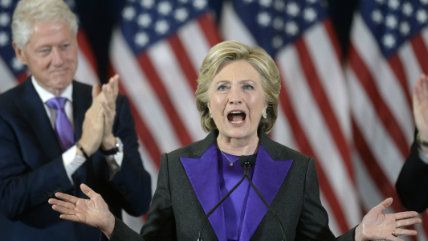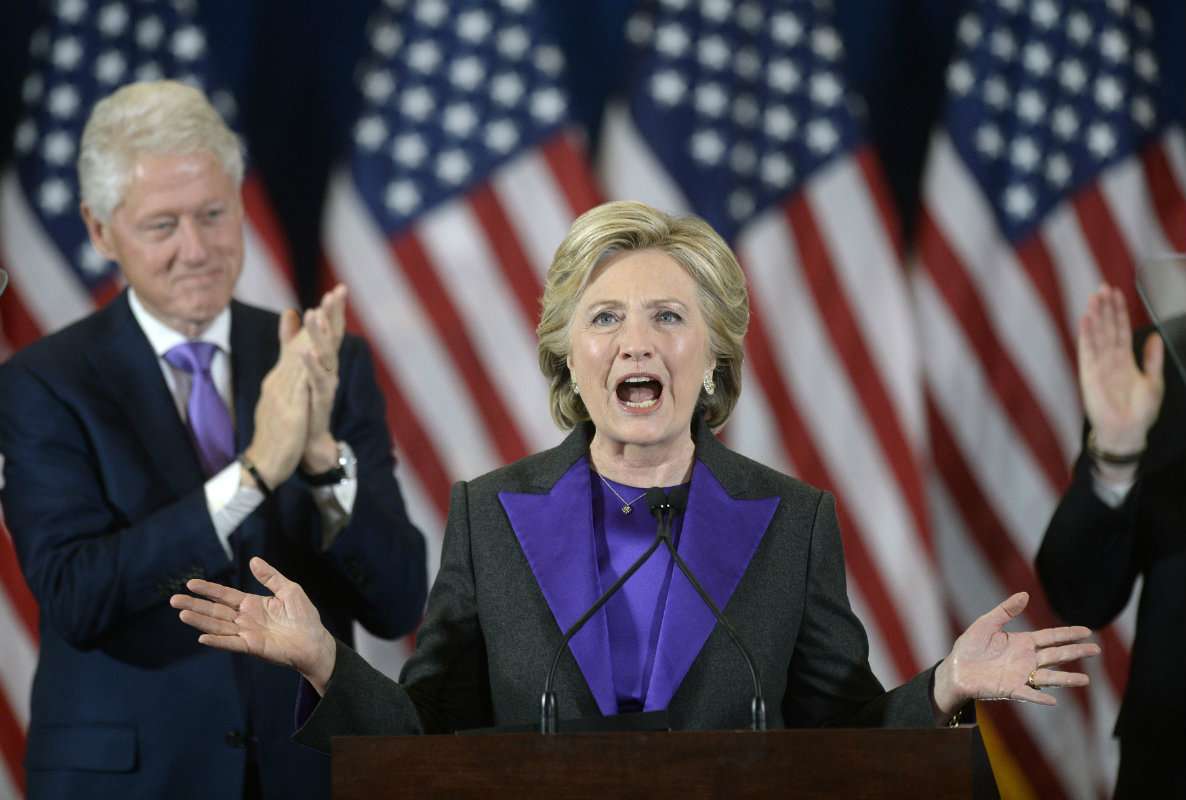Trump Ads Were More Policy-Focused, Less Negative Than Clinton's 2016 Election Ads, Find Wesleyan Researchers
"Clinton's message was devoid of policy discussions in a way not seen in the previous four presidential contests."


Say what you will about Hillary Clinton, but at least she wasn't the candidate turning the 2016 election into a policy-light, personality-driven circus…right? Not so fast. Conventional wisdom may hold that Clinton ran the more serious and substantive campaign, but a new analysis out of Wesleyan University suggests otherwise, at least when it comes to campaign advertising.
"Clinton's message was devoid of policy discussions in a way not seen in the previous four presidential contests," according to the Wesleyan Media Project, which analyzed election ads that ran between June 8, 2016, and election day.
For the analysis, Wesleyan researchers coded Clinton and Trump ads—including those from their respective campaigns and ads from political action committies and allies—as being driven by policy, personality, or both. They found that more than half of Clinton's ads focused on Clinton's positive personal qualities or Trump's negative personal qualities rather than on policy matters, compared to a little over 10 percent of Trump's ads.
Campaign advertising for Trump, meanwhile, was both more likely to focus on policy issues alone and to focus on a mix of policy and candidates' personal qualities, as you can see in the chart below.*
The Wesleyan researchers also compared Clinton and Trump ads to those run in previous presidential election cycles, dating back to 2000. Clinton's personality-driven ads far outpaced those of either her Democratic or Republican predecessors in these past races. The candidate who comes nearest is Barack Obama in 2008, when around 15 percent of his ads lacked a policy message entirely (compared to around 10 percent of rival John McCain's ads).

Throughout the period, Democratic campaigns were more likely to use personality-driven ads than were Republicans with the exception of the 2012 election, when Mitt Romney ran more personality-driven ads than did Obama. In general, the biggest proportion of campaign ads focused on policy messages. Check out more of the Wesleyan Media Project's analysis in the latest issue of The Forum: A Journal of Applied Research in Contemporary Politics (open access through mid-April 2017).
Interestingly, the 2016 election cycle saw less negative advertising than the last one, according to the paper. "For all of the vitriol in the 2016 presidential election (in rallies, the debates, on cable news programs), the tone of political advertising was actually less negative than it was in 2012," it states. "The 2016 election did, however, earn the distinction of the second most negative in the last decade and a half."
Also notable: Nearly half of all Clinton campaign spots were negative, whereas more than half of Trump ads were "contrast spots, which discussed Clinton negatively but also provided information about Trump." Clinton's anti-Trump ads also emphasized her opponent's negative personal qualities rather than questionable policy positions, while "about 70 percent of ads from Trump and his allies that attacked Clinton contained at least some discussion of policy, and when there were contrasts drawn between the two candidates, those contrasts were almost all policy-based."

* This post previously mistated the degree of difference and has been updated.


Show Comments (49)